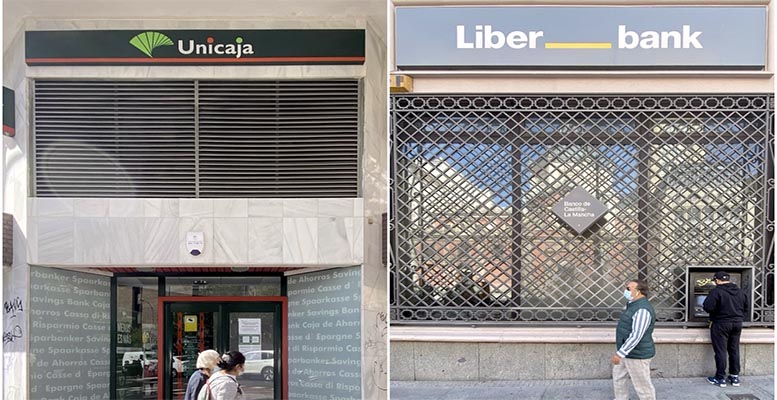Liberbank and Unicaja have announced they are once again in conversations over a future merger. In February, the two banks concluded possible merger contacts after failing to reach an agreement about the likely distribution of the shares of the new entity (there was talk of 60% Unicaja /40% LiberBank).
The Unicaja-Liberbank integration would give rise to the fifth lender in Spain in terms of asset volume, with 98.6 billion Euros (56.7 billion UNI and 41.95 billion LBK). Net profit would reach 102 million Euros in H1’20 (61 million UNI and 41 million LBK). The new bank would have a network of 1,607 branches (1,028 UNI and 579 LBK) and 9,942 employees (6,274 UNI and 3,668 respectively).
The banks’ share prices were cleary on the rise, up 13.6% and 15.1% respectively.
Renta 4 analysts believe that the probabilities of the transaction happening this time round are higher:
“Taking into account the new macroeconomic context. In addition, the Caixabank-Bankia merger has served as a turning point for the sector, along with the greater regulatory flexibility on the part of the ECB to facilitate operations.”
A priori, for Bankinter’s analysis team, the merger makes strategic sense, in terms of scale and diversification. Also financial sense, in terms of efficiency and profitability, but the key is in the details:
“Firstly, cost synergies (£150m/170m?), RoTE Target (6.0%/7.0%?) and lead times (2023?). And secondly, the price offered for LBK and the resulting share exchange in UNI securities.”
At current prices, Liberbank’s stock market capitalization is 0.67 times that of Unicaja. So technically, there would be a merger by absorption on the part of the former, which would control nearly 36% of the resulting group. This aspect is critical because it seems the merger negotiations were truncated in 2019 due to disagreements over the exchange equation. At that time, Liberbank wanted a 44%/45% stake in the new entity (compared to 36% at current market prices), but Unicaja did not want to go below 58%/60%.
The profitability (RoE) of both banks is low (3.1% UNI; 2.6% LBK in 1H20) and they are trading with similar valuation multiples (Price/Book Value ratio of 0.25x UNI; 0.22x Liberbank) and lower than the sector average (Price/Book Value of 0.3/0.4x).
The capital ratio of both is in the high range of the sector (CET1 14.4% in UNI & 14 % in LBK), with a default ratio of 4.5% in UNI and 3.1% in LBK (in the medium range for the sector).
If the operation goes ahead, Bankinter estimates an improvement in the resulting company’s Price/Book Value to 0.30x. This would be equivalent to a preliminary Target Price of 0.78 euros/share for UNI (+5.5% potential) and 0.33 euros/share for LBK. The latter would be the main theoretical beneficiary of the operation (+25.0% potential).





